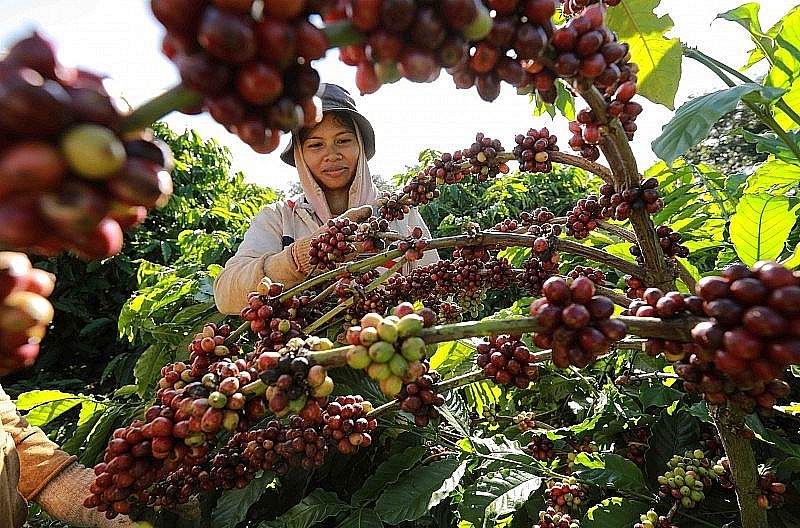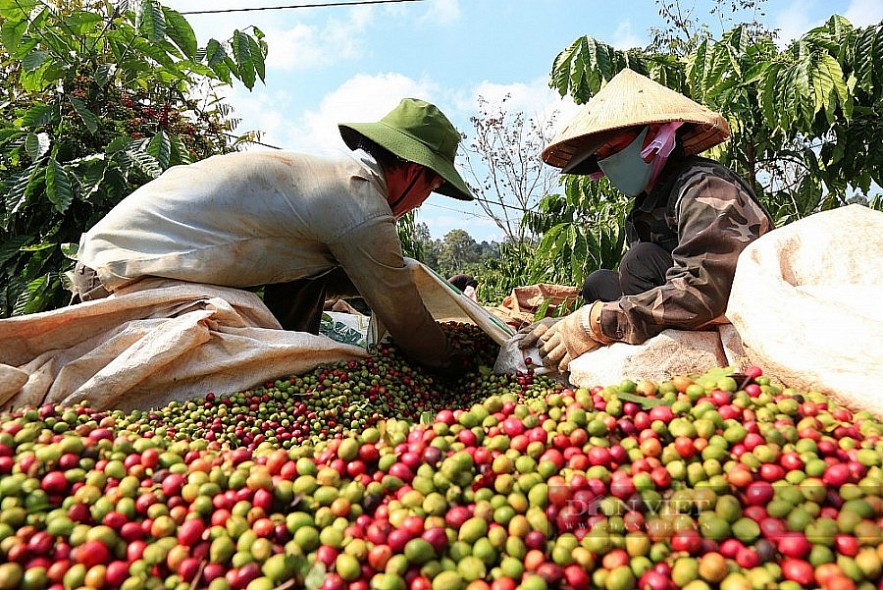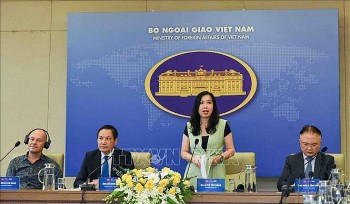Dual Impact of EVFTA On Vietnam's Coffee Exports to EU
 |
| The EU is a large market for Vietnamese coffee. Photo: VNA |
EU accounts for 40% of Vietnam's coffee exports
According to Vietnam Coffee-Cocoa Association (Vicofa), the EU is currently the most important market for Vietnamese coffee, accounting for about 40% of coffee exports.
As the owner of one of Vietnam's largest coffee export businesses, Phan Minh Thong, chairman of the Board of Directors of Phuc Sinh Group, shared that the EU-Vietnam Free Trade Agreement (EVFTA) has been helping domestic coffee exporters have great benefits.
Specifically, the EU is one of the leading countries in the region in food safety and hygiene.
When working with the EU, businesses need to pay attention to quality, because quality in the EU is controlled quite tightly and that is also their strength. Therefore, if cooperating with them, there is an advantage that businesses can improve product quality.
"Thanks to that, when we can export to the EU, we can export to many other markets around the world," Phan Minh Thong said.
Besides, the EU also leads in sustainable development. For example, the EU's Environmental, Social and Governance (ESG) standards have now been upgraded.
The EU is one of the leaders in ESG and the rest of the world follows the EU. EU machinery in food development issues is quite good and modern.
Therefore, when businesses import EU machinery to process, produce and export products to the EU, European businesses will more easily accept products, especially processed goods in the food industry.
"Thanks to that, currently, the amount of goods that Phuc Sinh exports to the EU market accounts for 45%-55% of the total export volume, with a revenue of about US$250 million.
The EU is a market Phu Sinh is especially interested in. We now have products in 27 EU member countries," Thong said.
Previously, most coffee businesses exported green coffee. Recently, with dozens of free trade agreements in effect, including the EVFTA, taxes on roasted and ground instant coffee in many countries apply a roadmap down to 0-5% and even the EU has a roadmap to reduce taxes to a low level.
This is a motivation for domestic enterprises as well as foreign invested enterprises to improve processing to increase the added value of coffee beans. This is also a long-term orientation for the Vietnamese coffee industry.
 |
| Photo: congthuong.vn |
Facing competition from foreign businesses
Along with the above advantages, EVFTA also creates a lot of competitiveness for domestic businesses when the agreement creates a push to attract investment from EU businesses to Vietnam to enjoy preferential tariffs when exporting to this market.
Phan Minh Thong said that in the past three years, a number of European businesses have come to Vietnam to open factories.
This is also one of the big challenges for Vietnamese businesses when they have to compete a lot with the same product.
Previously, European businesses hardly invested in raw materials.
However, after the EVFTA, they have a huge investment in raw materials to compete with Vietnamese businesses.
This is considered a driving force for Vietnamese businesses to be creative and change their ways to compete with these businesses.
Do Ha Nam, vice president of Vicofa, said that in the EU, coffee is an essential commodity after food. However, this market is also increasingly demanding high quality coffee.
Accordingly, the EU's tightening of pesticide residue regulations for beans, including coffee at 0.1 mg/kg, is also a difficulty. This requires farmers to adjust production methods to meet new standards for export activities.
EU regulations on combating deforestation and forest degradation take effect from 2023, and will be implemented by December 31, 2024.
At that time, the EU will not import seven products grown on deforested areas, including coffee, rubber, and palm oil.
These are the difficulties that the Vietnamese coffee industry is facing. Therefore, localities, associations and businesses are trying to meet requirements from the EU market to maintain the position of Vietnamese coffee beans here.
 | Vietnam Benefits From Vietnam-EU Free Trade Agreement Karl Van den Bossche, ambassador of the Kingdom of Belgium to Vietnam, said that Vietnam is benefiting from the Vietnam-European Union (EU) Free Trade Agreement. |
 | Vietnam's Exports to EU Increase Almost 50% Three Years after EVFTA After 3 years of implementing the Vietnam - EU Free Trade Agreement (EVFTA), Vietnam's exports to the EU increased by nearly 50%, as announced in ... |
 | 50 Years of Vietnam-Netherlands Ties Celebrated in Hanoi The Ministry of Foreign Affairs held a workshop in Hanoi on December 15 on 50 years of relations between Vietnam and the Netherlands, as well ... |


